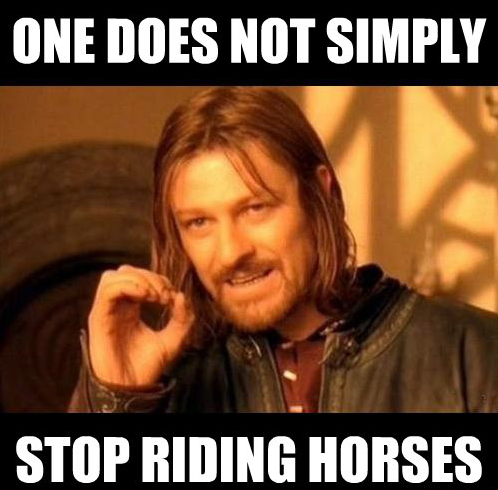Even if you are one of the select few riders who are able to make competing and training their profession, there inevitably comes a time when your physical abilities lessen. We all know it, and there are a number of people who manage to continue supporting themselves through lessons and other involvements in the sport outside of competition, but there are more who unable to make this transition. What happens after your competition heyday is over?
The FEI Sports Forum in Lausanne, Switzerland introduced a brand new online education project to help riders with just this problem. This is the very first professional online training tool produced by an Olympic sports organization specifically for its members. “Is there life after sport?” FEI President HRH Princess Haya asked in her opening address. The forum included sports, business and academic experts who gave practical advice in a presentation on life for riders in the workplace after they stop competing.
Equestrianism does fare better than some other sports, due to the massive demand for training riders and horses, but this does not mean it is easy to phase out of competing. Princess Haya spoke about how the FEI can help equestrians transition successfully from the competitive world into a professional career, with guidance and support to riders and National Federations.
“The increasing professionalisation of sport requires athletes to dedicate most of their time to training and competition. Often at an age where others are starting their professional education, athletes face the problem of combining intense training and competition with professional education,” said Princess Haya. “Society, as well as any responsible sports organisation, should enable its athletes to safeguard their future during their sports careers by providing them with opportunities to qualify for the job market.”
While the online education opportunities are new, the programme has in face been working for over 100 countries with training opportunities and job placements for over 10,000 athletes since 2005. “It is important to secure a basis for a new career even if it takes many years,” said Claudia Bokel, chair of the IOC Athletes Commission. “And of course you have to be realistic about what you want to achieve. But don’t contemplate failure, don’t take away the dreams!”
What do you think, EN? Do you believe the the FEI can realistically and competently offer guidance to individual athletes should they choose to transition out of competition? I know I worry about the day when I become too broken or old to compete and ride, and I see many old true horsemen fall into the rut where they can no longer support themselves, but have long past the point of gainful employment outside of the equestrian realm in which they spent their whole lives, and I dread that I will become one of them. Do you think the idea is good, and the prospects of success possible?



















